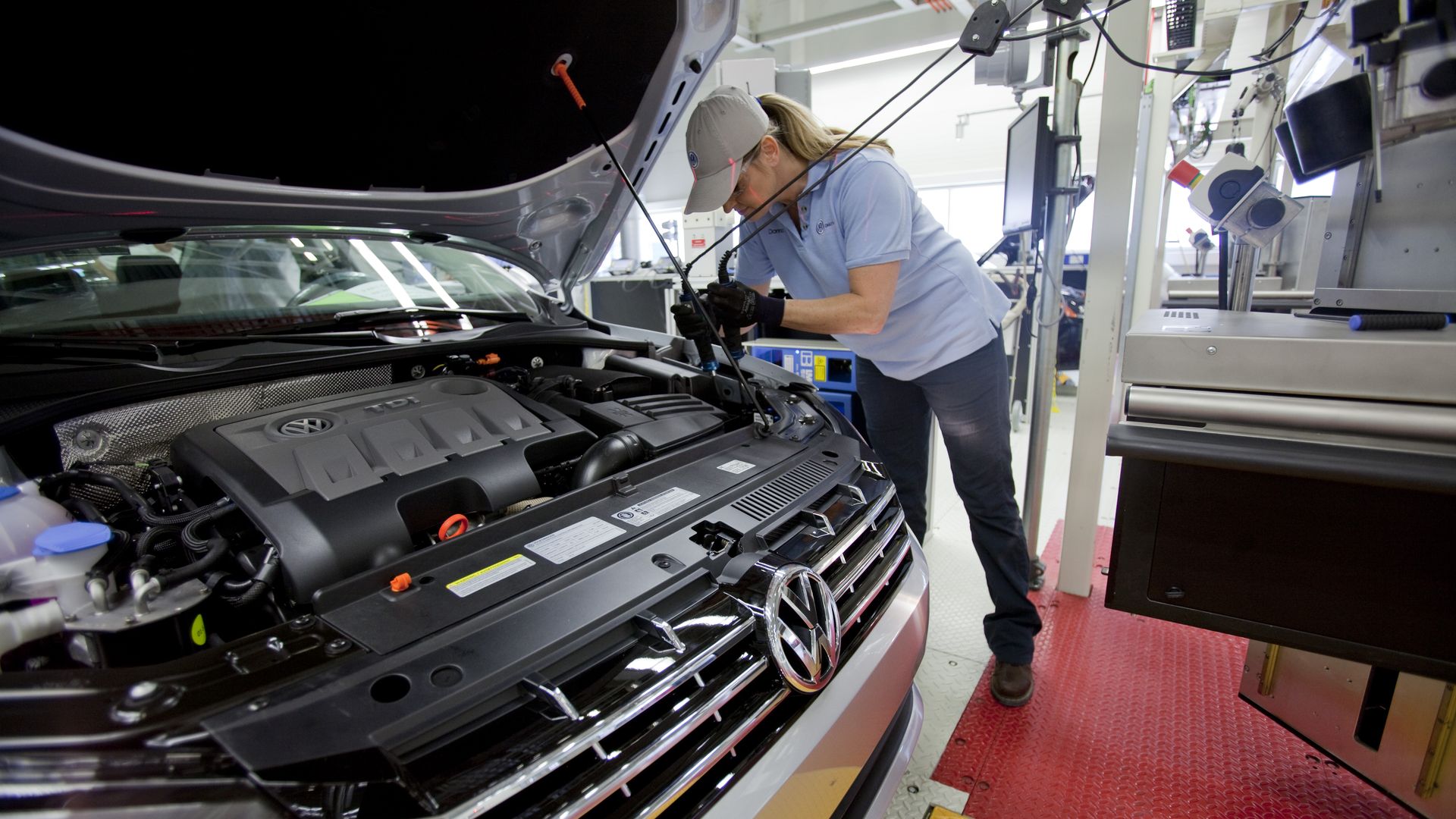Automakers are preparing to restart production in early May
Add Axios as your preferred source to
see more of our stories on Google.

VW's Chattanooga, Tenn., factory plans to resume production May 4. (Photo: VW)
The auto industry is shuddering back to life, after a six-week coronavirus-induced shutdown.
Why it matters: Vehicle manufacturing represents 3% of the nation's gross domestic product and employs 649,000 hourly U.S. workers. Resuming production will not only be a shot in the arm for the American economy, it could also set the tone for how other businesses reopen under strict health safety precautions.
The big picture: It's easy to quickly shut down production in the face of a global pandemic. Restarting factories is more difficult, requiring a carefully orchestrated process that involves hundreds of global suppliers, perfectly timed logistics and hundreds of thousands of employees.
- Now add the further complication of social distancing to protect workers from illness at all companies throughout the supply chain.
- "It's an incredible synchronization problem," said Kristin Dziczek, vice president of Industry, Labor & Economics at the Center for Automotive Research. "It means getting enough people to show up and be healthy, getting enough parts to show up when you need them and having enough customers ready to buy."
What's happening: Most carmakers, including FiatChrysler, Toyota and Honda, say they are targeting a gradual ramp-up of production starting on May 4.
- General Motors and Ford appear to be on a similar schedule, although they have yet to announce an official restart date.
- Volkswagen of America's plans, announced on Wednesday, are a good example of how automakers will proceed.
- VW said its Chattanooga, Tenn., plant will resume operations in phases, starting May 4, and gradually increase production over several weeks while progressively lifting restrictions.
- Workers will have their temperatures checked and receive masks, gloves and other protective gear while keeping six-foot distances from others.
Yes, but: Parts suppliers generally need a week or two head start to ensure vehicle manufacturers have the components they need to build cars.
- But stay-at-home orders in heavy manufacturing states like Michigan and Ohio remain in effect for now, meaning that typical buffer may not be possible.
